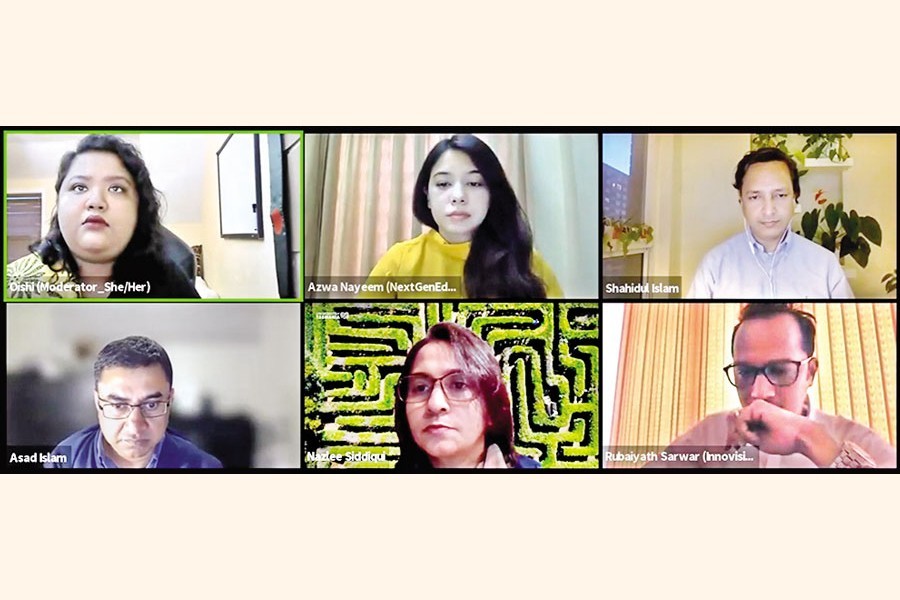Speakers during a webinar on Wednesday called for reducing digital divide urgently to ensure all students' equal access to education amid this pandemic.
They also emphasised quality of early childhood education, stronger teacher-parent ties and need-based curriculum for making education more effective.
They made the view during a virtual discussion styled 'Building on the achievements for an equitable education' hosted by Innovision Consulting in association with The Financial Express.
Technical and Madrasah Education Division secretary Md Aminul Islam Khan, Directorate of Secondary and Higher Education director general Prof Dr Syed Md Golam Faruk, Monash University economics professor Dr Asadul Islam, iSocial CEO Dr Ananya Raihan, and Innovision Consulting managing director Md Rubaiyath Sarwar, among others, spoke.
Despite some notable changes brought to the country's education system since independence, Mr Khan said, there have also been some challenges.
"Lack of training for teachers, their commitments and partnership between teachers, parents and students are some of the challenges for technical education."
Highlighting the government's attention to all streams of education, the secretary said it was also taking initiatives to transform madrasa education that involves around 2.5-million students.
The government has established as many as 35 model madrasas, which can show pathways to the traditional ones, according to Mr Khan.
The government is also looking to enhance the enrolment rate of technical education to 30 per cent by 2030 from existing 17 per cent.
A good number of students are yet to access digital devices to adopt the modern mode of learning, thus worsening the situation for many during the pandemic.
Digital divide means the gap between demographics and regions that have access to modern ICT products, including mobile device, computer and internet.
Mr Faruk said the government was very careful about equitable education in tune with sustainable development goals.
Due to interruptions to electricity, internet and unavailability of devices, he said, all students cannot equally access to digital platforms of education. Dr Asadul laid emphasis on early childhood education.
He said the country's early childhood education, that is the pillar of future education, is lagging far behind comparing to the developed countries.
"Unless we focus on primary and secondary education," Dr Asadul said, "we won't get better students at university level."
He also put stress on teacher-parent ties and cutting teachers' engagement in non-teaching activities.
The event was organised as part of an integrated dialogue campaign 'The Bangladesh Miracle: Celebrating 50 Years of Development Progress of Bangladesh' by Innovision in association with the FE and economics department of North South University.
Other partners are mPower, CARE, ICCO, GAIN, WaterAid, Simprints, BIID, Pathao, Sarabangla, Colors Fm. Windmill Advertising, Young Economists' Forum (YEF) and Printagraphy.


